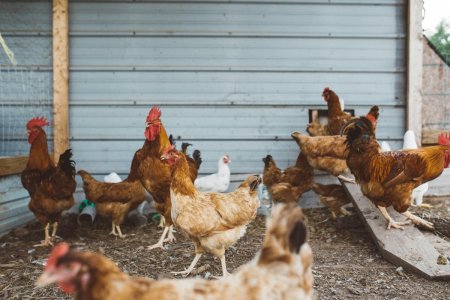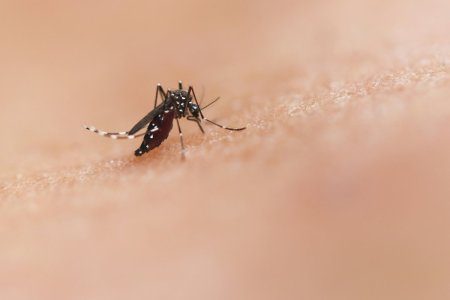Alert: Are You Eating Safe? The Latest Food Safety Updates You Can't Afford to Miss!
By
Aubrey Razon
- Replies 0
In an era where foodborne illnesses can spread faster than ever before, staying informed about food safety measures is crucial–especially for those of us who have seen many a harvest and understand the importance of a safe food supply.
The United States Department of Agriculture’s (USDA) recent announcement regarding changes in Salmonella testing for poultry products has raised eyebrows and questions alike.
But before you swear off your favorite chicken dish, let's carve into the details of what these changes mean for your dinner table.
At first glance, this might sound like a step back in food safety.
However, the agency assures us that the cutbacks are due to a sufficient amount of data already collected–which allows them to focus on more targeted and efficient testing strategies.
The FSIS is not flying blind; they're equipped with whole genome sequencing (WGS), a cutting-edge technology that decodes the DNA of foodborne pathogens found in regulated products.
This scientific advancement enables the FSIS to:
Not all Salmonella strains are created equal–some are less likely to cause illness.
With this in mind, the FSIS is refining its focus to target those strains that pose the greatest risk to public health.
Consumer Reports, a champion for consumer protection, has acknowledged that the new sampling plan makes sense in many ways, given the advancements in testing capabilities.
Michael Hansen of Consumer Reports, who also serves on the National Advisory Council on Microbiological Criteria for Foods, highlights the importance of the FSIS's ability to better test for Salmonella and Campylobacter.
The agency's transparency in making results public for further analysis is a step forward in food safety.
The FSIS's sampling plan also indicates a commitment to exploring the use of genomic data to attribute illnesses to specific foods and to understand the adaptability and pathogenicity of these bacteria.
This research is vital for developing strategies to reduce the incidence of foodborne illnesses.
Despite the overall positive outlook, there are concerns.
The FSIS plans to halve the testing of ground chicken and turkey products–which Hansen points out is problematic since these products are more likely to be contaminated.
The agency also intends to suspend exploratory sampling of mechanically separated turkey and chicken products, as well as chicken halves and quarters, based on the premise that they have adequate data from these products for analysis.
The FSIS will also decrease Campylobacter analysis in all poultry products to the minimum samples needed to estimate prevalence while considering the next steps for Campylobacter policy.
This reduction in testing is significant, with a decrease of 13,600 tests planned.
The FSIS's 2024 plan includes efforts to reduce Salmonella in raw, breaded chicken products and to implement verification testing approaches for raw, not ready-to-eat (NRTE) breaded, stuffed chicken products.
Other notable changes include:
As a member of the GrayVine community, you might be wondering how these changes affect your health and safety.
The key takeaway is that while testing is being reduced in some areas, the FSIS is honing in on the most dangerous strains and using more sophisticated technology to protect the public.
However, it's always wise to practice good kitchen hygiene:
Remember, staying informed and vigilant is the best recipe for a safe and healthy dining experience!

Have these changes impacted your confidence in the safety of poultry products? Do you have any food safety tips you'd like to share with fellow readers? Share your insights and tips in the comments below.
The United States Department of Agriculture’s (USDA) recent announcement regarding changes in Salmonella testing for poultry products has raised eyebrows and questions alike.
But before you swear off your favorite chicken dish, let's carve into the details of what these changes mean for your dinner table.
Understanding the USDA's New Poultry Plan
The USDA's Food Safety and Inspection Service (FSIS) has released a 33-page sampling plan for fiscal year 2024 that outlines a reduction in certain Salmonella tests for poultry products.At first glance, this might sound like a step back in food safety.
However, the agency assures us that the cutbacks are due to a sufficient amount of data already collected–which allows them to focus on more targeted and efficient testing strategies.
The FSIS is not flying blind; they're equipped with whole genome sequencing (WGS), a cutting-edge technology that decodes the DNA of foodborne pathogens found in regulated products.
This scientific advancement enables the FSIS to:
- Detect and investigate outbreaks;
- Identify potential instances of bacterial harborage; and
- Pinpoint unique genes–including those responsible for antimicrobial resistance.
Why Some Testing is Being Reduced
The FSIS's approach to Salmonella testing is nuanced.Not all Salmonella strains are created equal–some are less likely to cause illness.
With this in mind, the FSIS is refining its focus to target those strains that pose the greatest risk to public health.
Consumer Reports, a champion for consumer protection, has acknowledged that the new sampling plan makes sense in many ways, given the advancements in testing capabilities.
Michael Hansen of Consumer Reports, who also serves on the National Advisory Council on Microbiological Criteria for Foods, highlights the importance of the FSIS's ability to better test for Salmonella and Campylobacter.
The agency's transparency in making results public for further analysis is a step forward in food safety.
The FSIS's sampling plan also indicates a commitment to exploring the use of genomic data to attribute illnesses to specific foods and to understand the adaptability and pathogenicity of these bacteria.
This research is vital for developing strategies to reduce the incidence of foodborne illnesses.
The Controversial Cuts
Despite the overall positive outlook, there are concerns.
The FSIS plans to halve the testing of ground chicken and turkey products–which Hansen points out is problematic since these products are more likely to be contaminated.
The agency also intends to suspend exploratory sampling of mechanically separated turkey and chicken products, as well as chicken halves and quarters, based on the premise that they have adequate data from these products for analysis.
The FSIS will also decrease Campylobacter analysis in all poultry products to the minimum samples needed to estimate prevalence while considering the next steps for Campylobacter policy.
This reduction in testing is significant, with a decrease of 13,600 tests planned.
Key Points for Fiscal Year 2024
The FSIS's 2024 plan includes efforts to reduce Salmonella in raw, breaded chicken products and to implement verification testing approaches for raw, not ready-to-eat (NRTE) breaded, stuffed chicken products.
Other notable changes include:
- Reducing tests for Salmonella and Campylobacter for ground and other comminuted chicken from 2,500 to 1,250;
- Reducing the testing of turkey carcasses from 1,730 to 700;
- Reducing ground and other comminuted turkey from 1,500 to 750;
- Eliminating exploratory testing for mechanically separated turkey.
What This Means for You
As a member of the GrayVine community, you might be wondering how these changes affect your health and safety.
The key takeaway is that while testing is being reduced in some areas, the FSIS is honing in on the most dangerous strains and using more sophisticated technology to protect the public.
However, it's always wise to practice good kitchen hygiene:
- Wash your hands;
- Cook poultry to the recommended temperature of 165°F; and
- Keep raw meat separate from other foods to prevent cross-contamination.
Remember, staying informed and vigilant is the best recipe for a safe and healthy dining experience!
Key Takeaways
- The USDA's FSIS plans to reduce Salmonella testing in some poultry products due to having sufficient data from previous testing.
- Whole genome sequencing (WGS) is being used by the FSIS for more accurate testing of foodborne pathogens and identifying resistance genes.
- The FSIS is also focusing on Campylobacter–developing new allele codes for better tracking and comparison of isolates.
- Some consumer protection groups have concerns, but overall the sampling plan reduction is seen as aligning with the FSIS's comprehensive approach to reduce Salmonella illnesses.
Have these changes impacted your confidence in the safety of poultry products? Do you have any food safety tips you'd like to share with fellow readers? Share your insights and tips in the comments below.








